In 2023
$101 billion
was lost to Storms
$52 billion
was lost to Earthquakes
$20 billion
was lost to Floods

Infrastructure resilience is a critical global challenge
14%
of global GDP growth is at risk
each year from infrastructure
losses to climate change and disasters
Source: CDRI
80%
of this risk is concentrated in the
critical power, transport, and
telecommunications sectors
Source: CDRI
Disaster resilient infrastructure absorbs, respond, and recovers swiftly from disasters; and returns a resilience dividend including:
- $4 return for each $1 invested
- Reduced loss and damage
- Limited service disruption
In order to make our infrastructure resilient in the face of disasters, India is launching a Coalition for Disaster Resilient Infrastructure. I invite all member states to join this Coalition.”
Prime Minister of India, Narendra Modi, 2019
CDRI: A Global Coalition

CDRI is dedicated to enhancing the resilience of infrastructure systems to climate and disaster risks. It includes national governments, international organizations, and private sector. Members benefit from access to global expertise, funding, technical support, research opportunities, innovative solutions, and international best practices.
53 Members
163 Projects
$21.52mn Funding

What we do

Delivering
solutions for
DRI

Enabling
resilient
infrastructure

Where we work

Resources


Home
Newsletter March 2025
Newsletter (March 2025)
Making the case for DRI
DG Amit Prothi spoke with Govindraj Ethiraj of The Core Report about CDRI’s recently released study on telecom resilience in India, which emphasized the importance of seamless connectivity and the interconnectedness of infrastructure. Launched in February 2025, CDRI’s first-of-its-kind study provides a roadmap to strengthen digital infrastructure.
Know more: Telecom Policy Brief
Building the Coalition
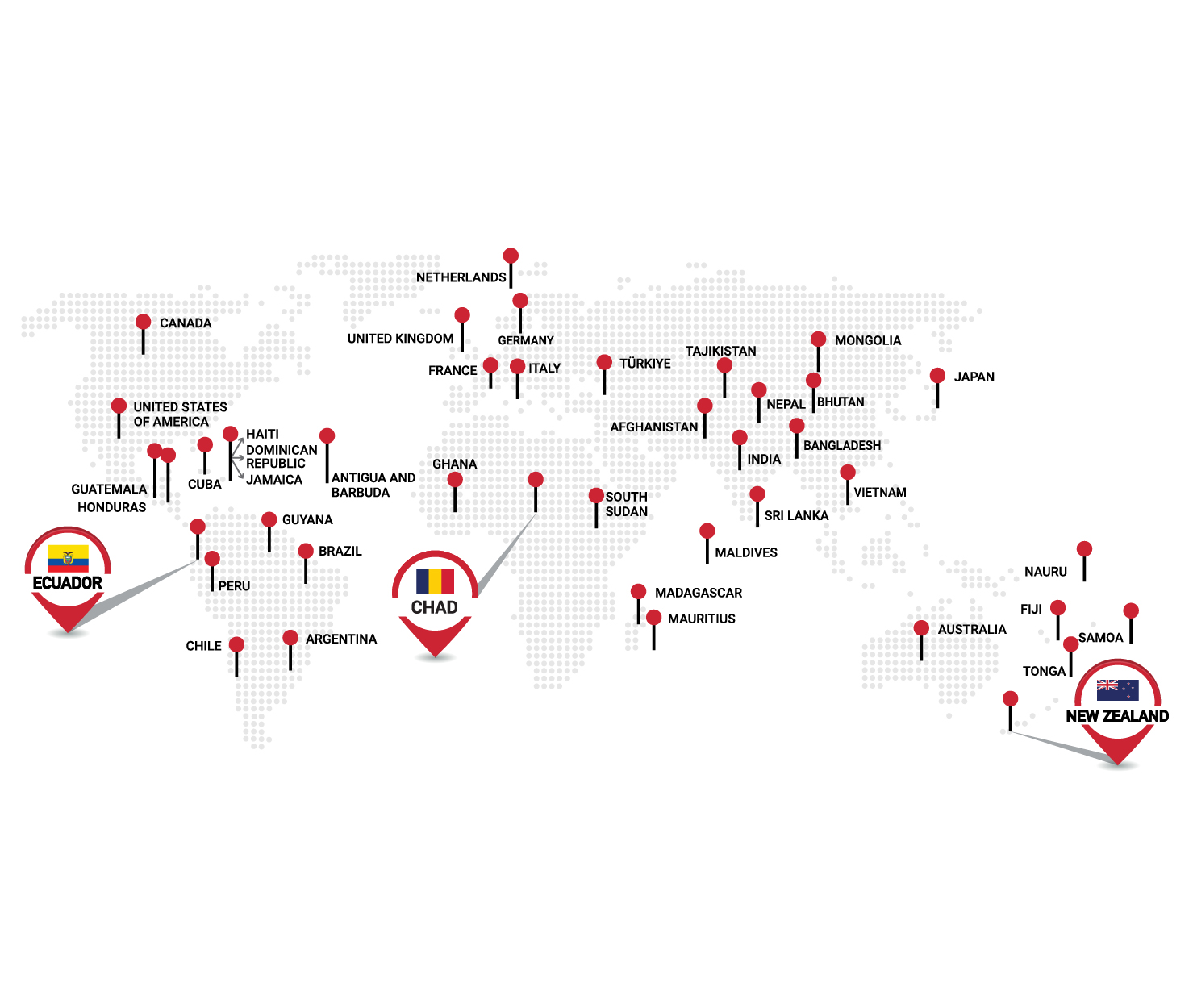
Building the Coalition
Three countries joined CDRI in the first quarter of 2025- Chad, Ecuador, and New Zealand. This brings the Coalition’s membership to 50. All have endorsed the CDRI charter underpinning their commitment to advance DRI. We look forward to welcoming them to their first General Council meeting in May 2025.
Leading global conversations on DRI
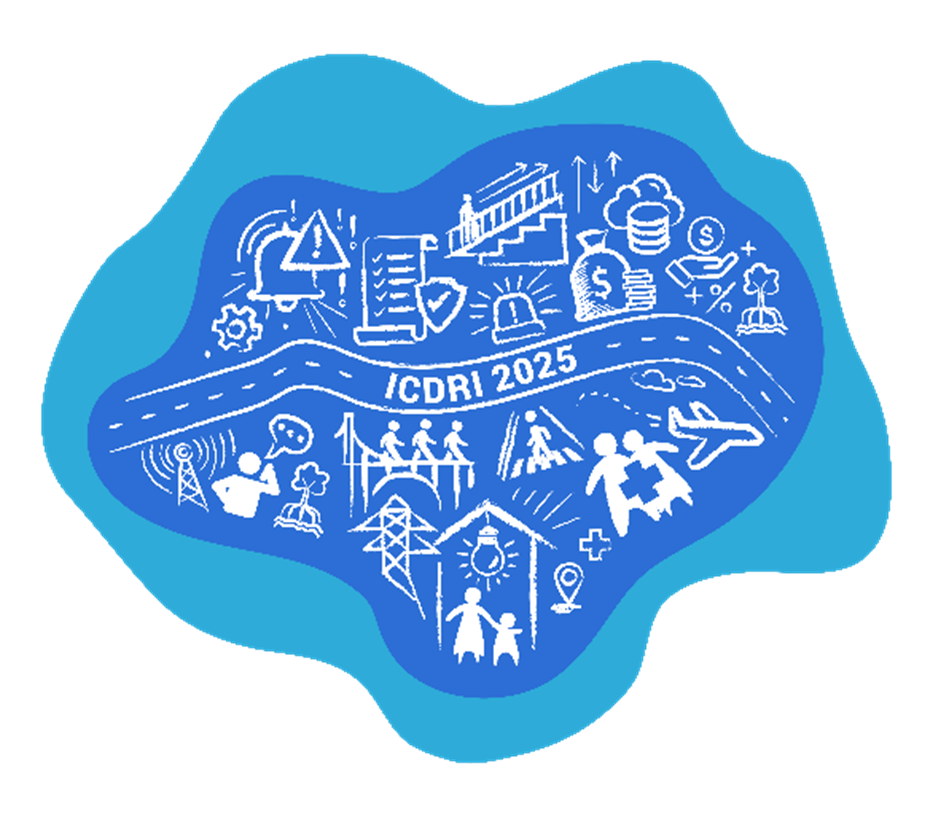
Strengthening coastal resilience
ICDRI 2025 will be held in Nice, France, on June 7, with preparatory meetings on 6 June. The conference will focus on strengthening critical coastal infrastructure, to enhance resilience and protect communities. A ‘Call to Action,’ developed by global experts, will be launched sharing actionable recommendations on finance, technology, early warning systems, and resilience standards.
Lessons in resilience and future preparedness
On the 10th anniversary of the 2015 Nepal earthquake, CDRI convened a dialogue on strengthening resilience through stronger building codes, urban planning, and innovative solutions. Drawing lessons from Nepal’s recovery, experts stressed comprehensive Post-Disaster Needs Assessment, resilient housing, and technology-driven solutions to reduce risks.
Scaling up adaptation finance using taxonomies
Increasing climate volatility is causing serious financial impacts. Experts at this DRI dialogue emphasized the role of taxonomies in directing investments towards resilient infrastructure and highlighted the need for a well-structured project pipeline to effectively scale up adaptation finance.
Champions of DRI
H.E. Marisa Gerards, Ambassador of the Kingdom of the Netherlands to India, Nepal, and Bhutan
H.E. Marisa Gerards, Ambassador of the Kingdom of the Netherlands to India, Nepal, and Bhutan, highlighted the impact of rising sea levels and biodiversity loss. The Ambassador emphasized the importance of collaboration with CDRI to share best practices with members and strengthen the resilience of urban water systems.
Promoting risk-informed policy and practice
Making urban mobility resilient
Reliable public transport can support economic growth and ensure access to opportunities for millions of people. CDRI’s Community of Practice for Extreme Heat Management in Public Transport Systems released a guidance document highlighting the impact of heat on mobility systems, offering actionable recommendations for governments to enhance the resilience of transit systems.
Building a global network of future-ready infrastructure professionals
INTEC University and the National Emergency Commission of the Dominican Republic, with funding from CDRI’s Fellowship Programme, are developing an AI-driven simulator for more precise forecasting of climate emergency scenarios. This tool will help stakeholders mitigate risks, strengthen disaster preparedness, and enhance resilience against unforeseen climate challenges.
Building a shared understanding on DRI
It is crucial for policymakers, practitioners, and academicians to deepen their understanding of disasters and hazard ecosystems for faster and improved decision-making. A DRI Lexicon was released in April 2023 to foster a shared understanding. To advance the initiative and build people’s capacity further, an engaging e-learning module is set to launch soon. Stay tuned!
Enhancing capacities to impact DRI & post-disaster recovery
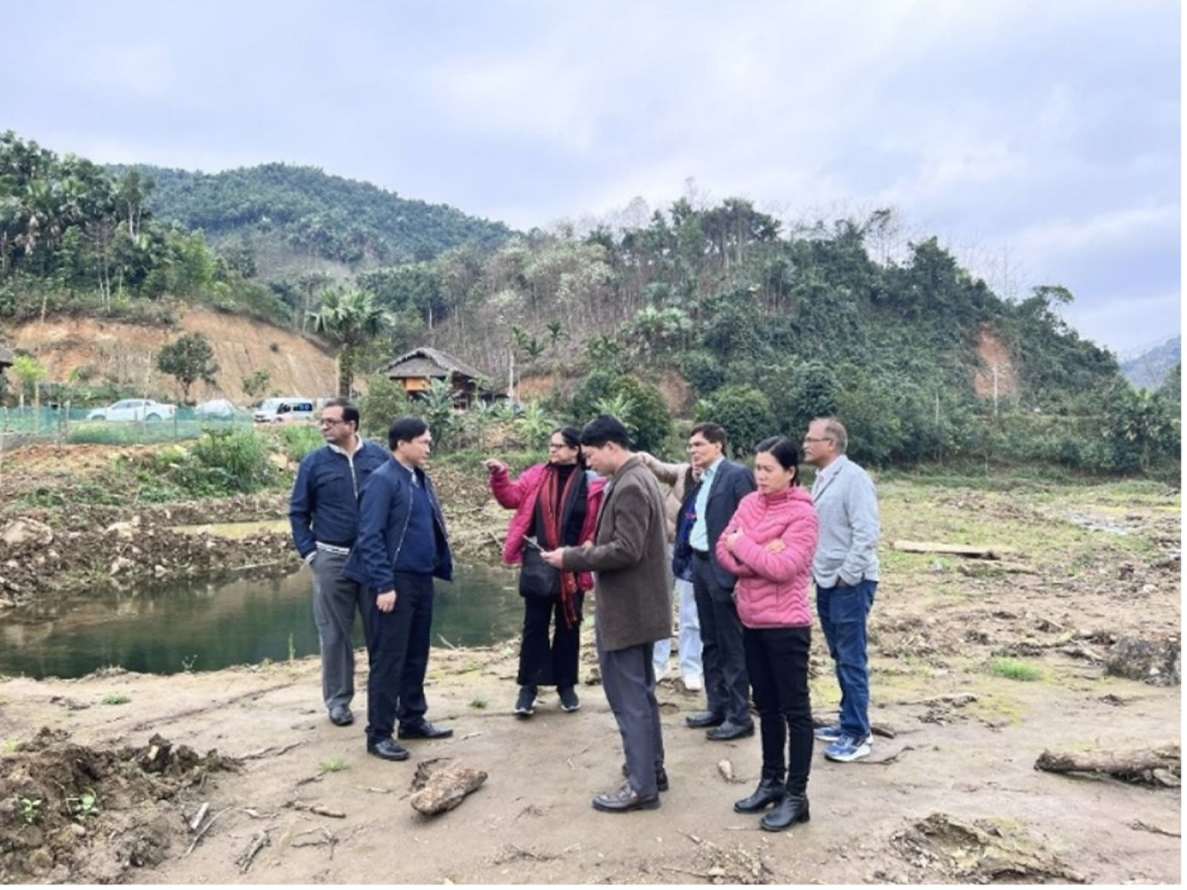
Advancing infrastructure resilience in Vietnam
At the request of the Vietnam’s Dykes and Disaster Management Agency, a CDRI mission visited Vietnam. Vietnamese officials shared insights on Typhoon Yagi’s impact on critical infrastructure and government’s resilience measures. As part of next steps, CDRI is exploring collaboration through Technical Assistance for the road and power sectors.
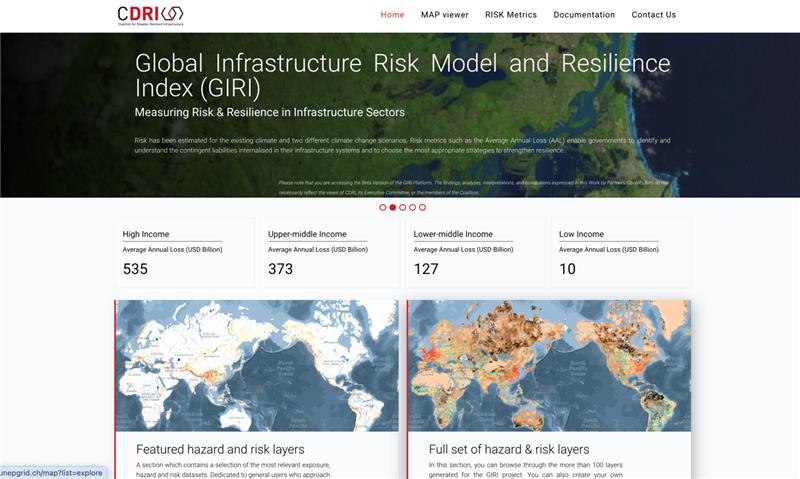
Using GIRI? Get featured in CDRI’s flagship report
The world’s first fully probabilistic risk model, Global Infrastructure Risk Model and Resilience Index (GIRI) is transforming how we assess risks to critical infrastructure. Have you used GIRI in your work? Share your experience at biennialreport@cdri.world and some of them will get featured in the 2nd Edition of CDRI’s Flagship Report on Global Infrastructure Resilience.
Strengthening resilient housing in Dominica
Dominica, the world’s fourth most disaster-prone nation, aims to become the first climate resilient country by 2030. Supported by CDRI, the ‘Data and Systems for Resilient Housing’ will help strengthen homes, protect communities, and safeguard livelihoods from future disasters. Read More to know about how we are contributing towards resilient housing.
Five steps for boosting airport resilience
Over 10% of global airports are at risk of flooding from rising sea levels, which may only worsen due to climate change. Based on an analysis of 111 airports across 54 countries, CDRI’s Five Steps towards Resilience of Airports offers actionable strategies to minimize disruptions, reduce economic losses, and ensure uninterrupted operations amidst increasing climate threats.
Global Infrastructure Resilience Survey- launching in April
CDRI and International Coalition for Sustainable Infrastructure are conducting a Global Survey on Experts and Professionals, to assess how infrastructure systems can withstand disasters and adapt to evolving risks. The survey seeks insights on country-level capacities in infrastructure resilience and will contribute to the Second Global Infrastructure Resilience Report.
Viewpoint
Staff testimonial
Agathe Nougaret, International Technical Expert in Infrastructure, Climate Change, and Adaptation, who is on secondment to the CDRI Secretariat from the Government of France, speaks on her work.


Home
Newsletter December 2024
Newsletter (December 2024)
Making the case for DRI
At COP29, addressing the Parties to UNFCCC, DG Amit Prothi outlined the resilience dividend and the importance of adaptation funding being available for climate and disaster resilient infrastructure, especially for the most vulnerable.
Building the Coalition

Building the Coalition
In August 2024, Vietnam became the 40th country and 47th member to join CDRI. A CDRI Secretariat mission is planning to visit Vietnam in January 2025.
Leading Global Conversations on DRI

Championing disaster resilience at COP 29
At COP 29, CDRI hosted a DRI pavilion that provided space for conversations with ministers, senior officials, and over 130 global experts across 32 sessions. We also announced a new Mountain Resilience Programme and launched a Physical Climate Risk Assessment Playbook for Financial Institutions as well as engaging 30 countries, 87 organizations, and speaking at nine side events.
Leading global conversations on DRI
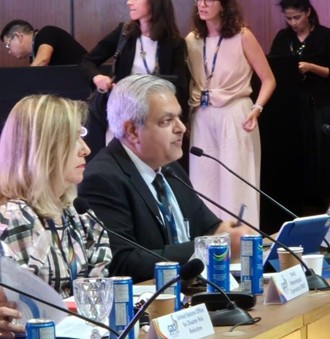
Promoting DRI at G20
CDRI launched a ‘Compendium of good practices on DRI’ at the G20 DRR Ministerial Meeting in Brazil. The compendium supports CDRI’s commitment to support knowledge sharing for achieving DRI within the G20 in line with the DRR Working Group Workplan agreed under the India Presidency in 2023.
Champions of DRI
H.E. David Puig, Ambassador of Dominican Republic to India
H.E. David Puig speaks about the importance of DRI, CDRI’s exciting growth over the past three years, and the IRIS funded projects underway in the Dominican Republic.
Promoting risk-informed policy and practice
Building a global network of future-ready infrastructure professionals
The fifth edition of the CDRI Fellowship Programme received a record 174 applications from 20 member countries. This cohort will develop innovative research and solutions with a special attention to wildfires, extreme heat, and coastal geographies.
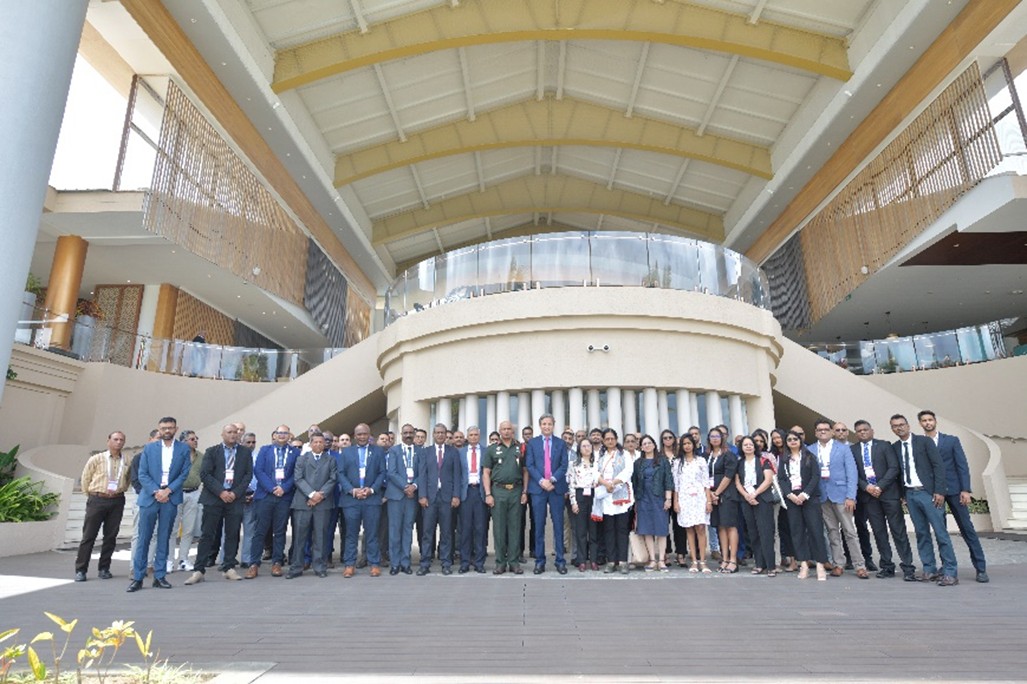
Enhancing infrastructure resilience in Mauritius
A workshop on infrastructure resilience, organized with the National Disaster Risk Reduction and Management Centre, Mauritius, engaged 56 participants from 48 ministries and departments. Discussions focused on recommendations to limit the impact of disasters on infrastructure through enhanced resilience.
CDRI's Second Biennial Report: Unlocking the Resilience Dividend
The second edition of our Flagship report will be released in Autumn 2025. It focus on how to capture the 'resilience dividend,' measure the indirect costs of disasters, and showcase financial tools, institutional frameworks, new technologies, and Nature-based solutions to enhance DRI.
Enhancing capacities to impact DRI & post-disaster recovery
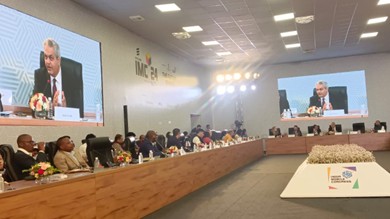
Reinforcing the resilience of telecommunications
At the World Telecommunication Standardization Assembly in New Delhi, DG Amit Prothi shared insights on using ‘AI for disaster risk assessment’ during the session focusing on the Role of Standardization and Innovative Technologies.
Supporting a resilient future for SIDS
CDRI announced the award of $8 million in new funding to 12 projects from 18 Small Island Developing States under its IRIS programme at COP 29. This brings the total number of projects supported by CDRI under IRIS to 23.
Improving the Resilience of Urban Infrastructure
A funding call of $2.5 million was launched by CDRI under its Urban Infrastructure Resilience Programme. Five cities will be selected from the 30 eligible CDRI LMIC and SIDS members to enhance their resilience to extreme heat, flooding, and water scarcity. The call will close in January 2025.
.jpg)
Data strategies for strengthening infrastructure resilience
CDRI is developing a Data and Technology Program to strengthen its member countries’ ability and capacity to procure, access, manage, and use risk data and technologies to improve disaster resilience of infrastructure. The program will focus on LMIC and SIDS members.
Viewpoint
Staff testimonial
Nony Gupta explains her role at the Secretariat and her experiences of working with CDRI.
Building Resilience: The Year in Review


Home
Newsletter September 2024
Newsletter (September 2024)

Amit Prothi, Director General, CDRI
It is with great pleasure that CDRI launches our new newsletter. In the backdrop of increasing climate extremes and disasters, it is imperative that we collaborate, share, and catalyze action to support the most vulnerable. This newsletter will form part of our efforts to do that across our growing Coalition; now 40 countries and seven organizations.
Enjoy reading! We would love to hear your thoughts on how we tailor the second edition to your needs and interests.
Building the Coalition
Expansion of the Coalition
Cuba was welcomed as the 46th member of the Coalition in February 2024. Addressing ICDRI 2024, President H.E. Mr. Miguel Díaz-Canel underscored the importance of sharing best practices and bolstering national capacities to effectively respond to disasters.
France becomes CDRI’s new Co-chair
In April 2024, France assumed the role of Co-chair of the Coalition, taking over from the United States of America. Aurélien Lechevallier, Director General for Global Affairs and Cultural and Economic Diplomacy will represent France at CDRI’s Governing Council
Leading the global conversation on DRI
CDRI convenes largest global gathering on DRI
ICDRI 2024 brought together governments, financial institutions, media and the private sector to showcase solutions and drive collective action. CDRI’s Director General and Director of Advocacy and Communications outline the key takeaways.
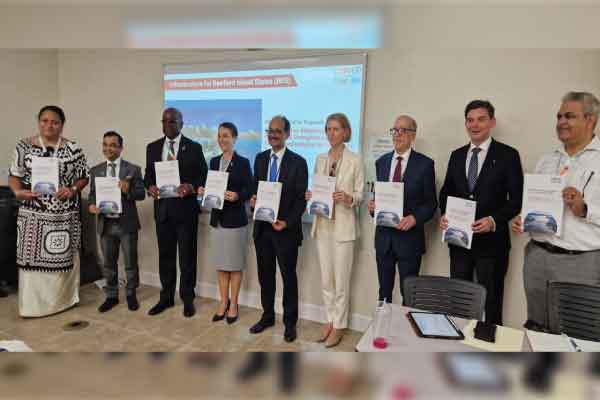
Supporting a resilient future for Small Island Developing States
Coalition member Antigua and Barbuda hosted the fourth UN Conference on Small Island Developing States in May. CDRI was present to advocate for the role of DRI in enabling resilient prosperity and to launch a Call for Proposals under IRIS.
Champions of DRI
Kamal Kishore, Assistant Secretary-General and Special Representative of the Secretary-General for Disaster Risk Reduction, United Nations Office for Disaster Risk Reduction
Kamal Kishore, Assistant Secretary-General and Special Representative of the Secretary-General for Disaster Risk Reduction, United Nations Office for Disaster Risk Reduction, and formerly the India co-chair of the Executive Committee, CDRI, shares insights on the importance of DRI.
Promoting risk-informed policy and practice
Supporting the next generation of infrastructure professionals through IRAX
Virginia Tech University was awarded a $5 million grant from USAID to collaborate with Indian institutions of higher education to improve training, research, and collaborative innovation on DRI. Here Veena Reddy, Mission Director, USAID/India speaks on Infrastructure Resilience Academic eXchange.
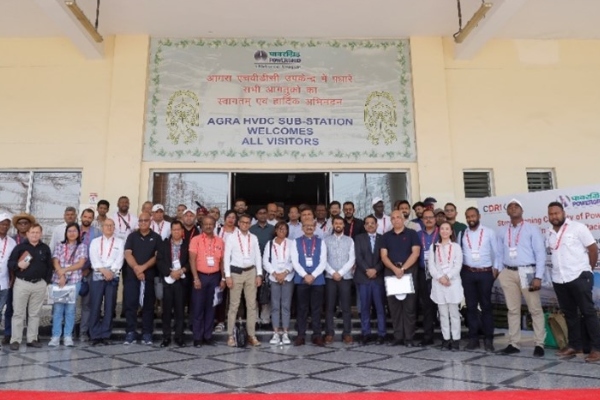
Strengthening resilience of critical infrastructure across the Indo-Pacific
CDRI, in partnership with the Government of India delivered a workshop for 60 power sector experts from 18 Indo-Pacific countries in New Delhi and Agra. Building disaster preparedness for energy infrastructure is a target for the Indo-Pacific Quad.
Fellowship Project Showcase
Maintenance and erosion impact resilience of unpaved roads. This project in Brazil combines nature and research to seek resilient infrastructure solutions.
Enhancing capacities to impact DRI & post-disaster recovery
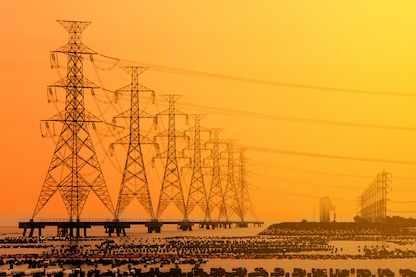
Strengthening resilience of power sector in coastal areas
A study by CDRI and the Government of Odisha on “Disaster Resilient Power Systems” provides replicable recommendations for strengthening power infrastructure in coastal regions. Read ‘Lessons from Odisha.’
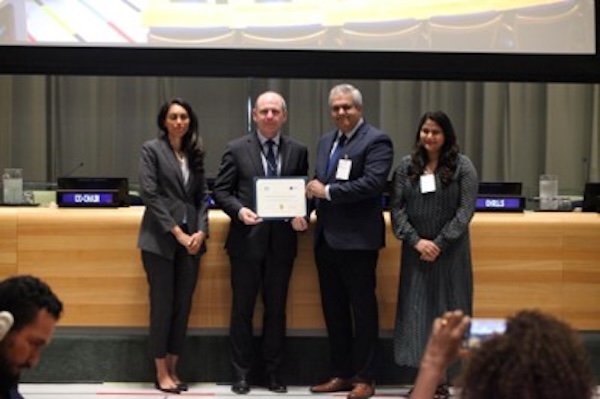
CDRI wins prestigious UN Award
CDRI was honoured with the 2024 UN SIDS Partnership Award under the environmental category, which was presented at the ‘Global Multi-Stakeholder SIDS Partnership Dialogue’ in New York.
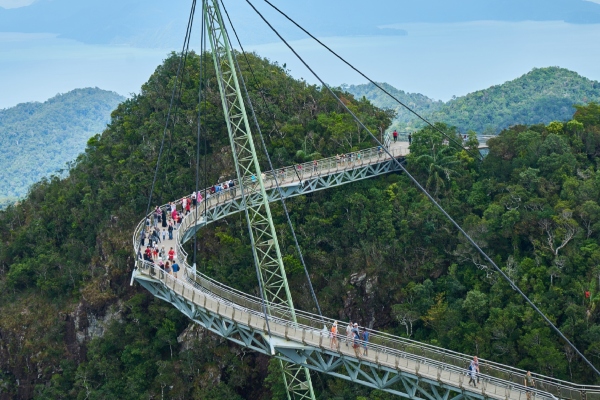
CDRI to launch Mountain Resilience Programme
Limited access to services and infrastructure, coupled with unique geographical challenges, makes mountain ecosystems particularly fragile. Climate change increases the risks for mountain communities. CDRI’s Mountain Resilience Programme will safeguard lives, protect livelihoods, ensure economic stability and promote environmental sustainability in these unique areas.
Viewpoint
Staff testimonial
Rana Divyank Chaudhary, who joined the Publications team in early 2024, shares his role and experience of working with CDRI.

The document provides a methodology to check how strong and safe the infrastructure is against disasters and climate risks. It offers a five-step process, including policy review, stress testing, and planning improvements. The goal is to help governments find weaknesses, improve disaster response, and build stronger, more resilient infrastructure for the future.
The document provides a methodology to check how strong and safe the infrastructure is against disasters and climate risks. It offers a five-step process, including policy review, stress testing, and planning improvements. The goal is to help governments find weaknesses, improve disaster response, and build stronger, more resilient infrastructure for the future. The goal is to help governments find weaknesses, improve disaster response, and build stronger, more resilient infrastructure for the future and build stronger, more resilient infrastructure for the future.

Most of the Indo-Pacific region’s power infrastructure is highly prone to climate and weather changes including…

Most of the Indo-Pacific region’s power infrastructure is highly prone to climate and weather changes including…

This is a general advisory that contains recommended steps for preparing wind and solar projects for cyclones and high-wind extreme…

The Global Methodology for Infrastructure Resilience Review provides a structured, five-step approach to help countries assess and enhance the resilience of their infrastructure systems.
Developed by UNDRR and CDRI, it begins with mapping institutional governance and identifying key stakeholders across sectors. It then reviews existing policies and regulations to evaluate alignment with disaster risk reduction (DRR) and climate change adaptation (CCA). The third step involves stress-testing infrastructure systems against multiple hazards to detect vulnerabilities and interdependencies. Step four assesses current practices using the Principles for Resilient Infrastructure through stakeholder workshops and scorecards. Finally, the methodology guides the development of an implementation plan and final report, consolidating findings and prioritizing actions.
Emphasizing cross-sectoral coordination, data-driven analysis, and stakeholder engagement, the methodology supports countries in mainstreaming DRR into infrastructure planning, design, and governance. It aims to foster resilient, sustainable infrastructure systems that can withstand and adapt to evolving risks.

Most of the Indo-Pacific region’s power infrastructure is highly prone to climate and weather changes including…

Most of the Indo-Pacific region’s power infrastructure is highly prone to climate and weather changes including…







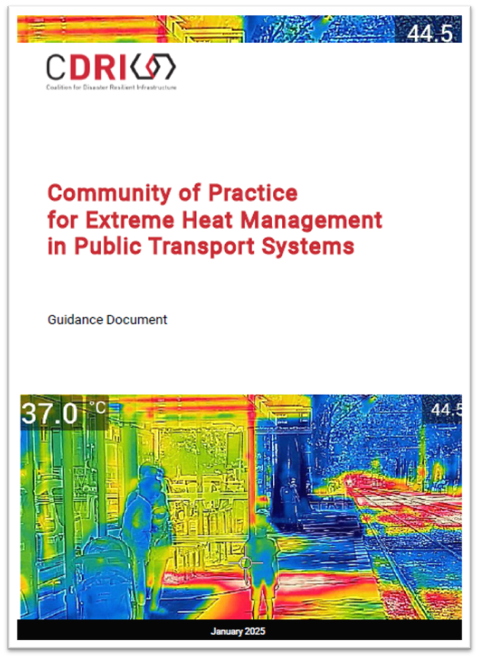
.jpg)
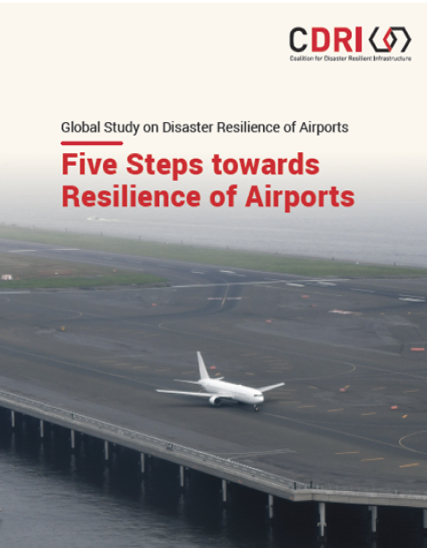
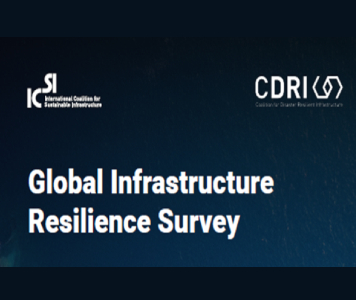
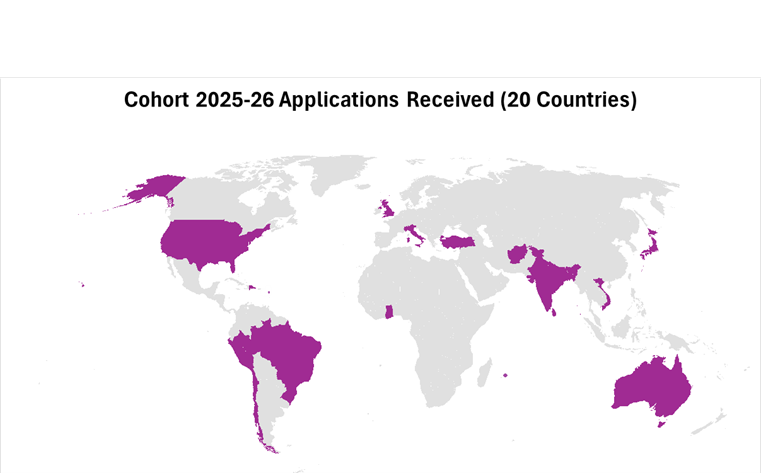
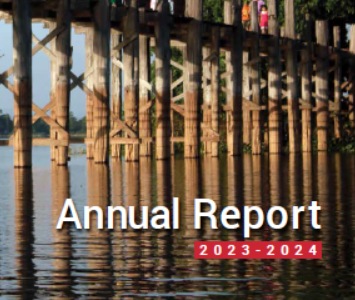
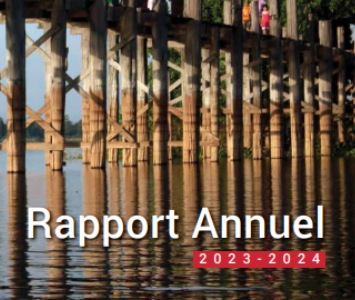
.jpg)